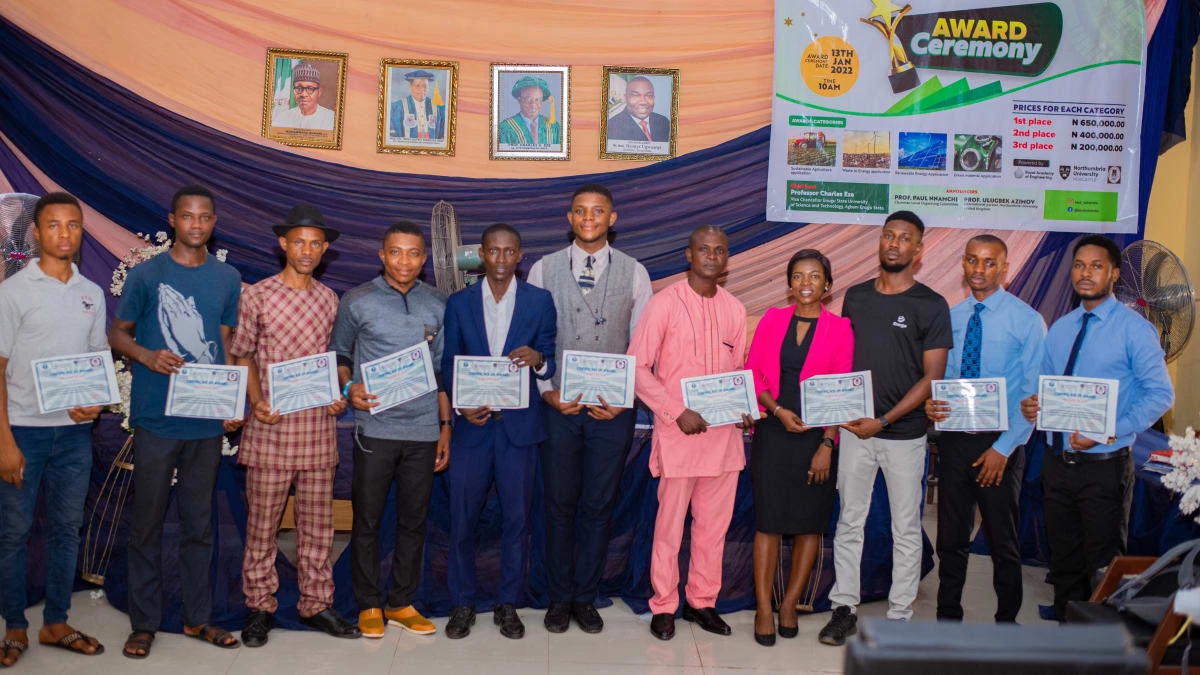
Northumbria University contributes to sustainable development in Africa
Researchers at Northumbria University have been instrumental in the creation of a centre for innovation and entrepreneurship in a low-income area of Africa.
Africa is broadly acknowledged as the poorest continent on Earth, and the centre, which was developed by a team from Northumbria University in collaboration with Enugu State University of Science and Technology in Nigeria, and other universities in the region, has already developed programmes to address energy shortages and educate local people on low incomes.
The Innovation and Entrepreneurship Centre for Rural Sustainable Development was funded by the Royal Academy of Engineering as part of the Higher Education Partnership in Sub-Saharan Africa (HEPSSA) programme, which aims to encourage collaboration between those in academia, local industries, and local governments to aid sustainability.
Dr Ulugbek Azimov, associate professor of mechanical engineering, who was Northumbria University’s lead on the project, explained, “as developing economies, sub-Saharan African countries are facing a formidable challenge in navigating through a complex energy demand-supply gap.
“Although the main income in rural communities is agriculture, it requires a huge amount of energy to cultivate healthy crops and the region’s energy supply is highly centralised, coupled with a lack of infrastructure. The accumulation of waste and its disposal also pose potential environmental and health threats in the area.”
The centre was therefore designed to create green jobs, sustainable economic growth, and healthy communities, by applying renewable energy technologies, providing green materials and waste-to-energy solutions, and introducing sustainable agriculture into rural communities.
Dr Azimov continued, “for individuals, this project will contribute to a cleaner environment and high-quality education and wellbeing; for organisations, it will initiate new research and development projects and investments in renewable energy, waste utilisation and sustainable agriculture.”
The centre has so far trained more than 50 local entrepreneurs and university students in managing and converting local waste, and scores more on green construction methods and agriculture, helping them also to plan, design and build appropriate small-scale renewable energy systems using techniques such as solar energy harvesting, biomass waste processing, and bio-gas production.
These programmes have been so successful that a regional competition has already been held, with cash prizes presented to participating local companies, entrepreneurs, non-profit groups, NGOs, students and individuals, to help them further develop their projects and ideas.
This project is an example of Northumbria’s contribution towards global sustainability. The University was ranked 50th in the world for sustainability in the 2021 Times Higher Education (THE) Impact Rankings and rated ‘first class’ for sustainability in the latest People & Planet University league table.
Looking to promote your product/service to SME businesses in your region? Find out how Bdaily can help →
Enjoy the read? Get Bdaily delivered.
Sign up to receive our daily bulletin, sent to your inbox, for free.




 test article 123456789
test article 123456789
 hmcmh89cg45mh98-cg45hm89-
hmcmh89cg45mh98-cg45hm89-
 test456456456456456456
test456456456456456456
 test123123123123123123
test123123123123123123
 test xxxdiosphfjpodskhfiuodsh
test xxxdiosphfjpodskhfiuodsh
 Savour the flavour: North Tyneside Restaurant Week returns for 2024
Savour the flavour: North Tyneside Restaurant Week returns for 2024
 Six steps to finding the right buyer for your business
Six steps to finding the right buyer for your business
 Stephen signs off on a special night
Stephen signs off on a special night
 Life’s a Peachaus: Gillian Ridley Whittle
Life’s a Peachaus: Gillian Ridley Whittle
 Making a splash: Phil Groom
Making a splash: Phil Groom
 Making workplace wellbeing a priority
Making workplace wellbeing a priority
 A record of delivery, a promise of more: Ben Houchen
A record of delivery, a promise of more: Ben Houchen